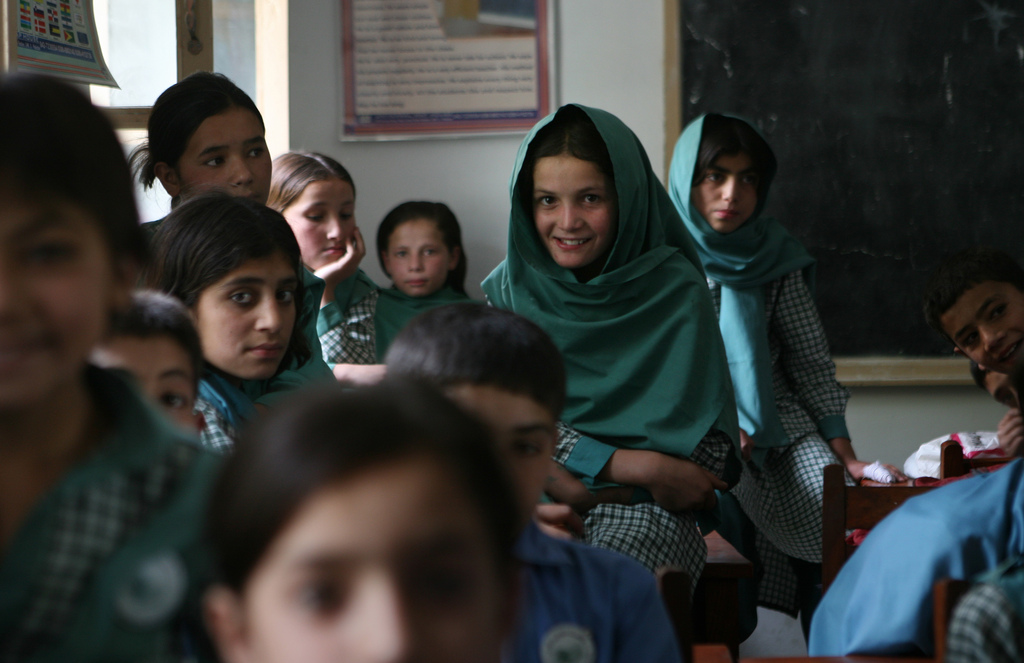Reflections from Davos: Intel Co-Hosts Education Discussion

Photo by Hashoo Foundation.
As I gathered alongside world leaders from governments, multilaterals, civil society, academia, and top corporations in Davos this past week, I reflected on the special opportunity that the World Economic Forum affords businesses to collaborate across sectors to deepen their social impact on the world. Of considerable importance this year is the role technology plays as a disrupter in the global economy as shown in the Forum’s overarching theme, “Mastering the Fourth Industrial Revolution.” In my role at one of the world’s largest technology innovators, I could not be more energized by the possibility of leveraging technology to remove barriers to education, particularly for girls.
As a GBC-Education Advisory Board member, I was honored to co-host a high-level education roundtable taking place on the sidelines of the World Economic Forum along with Executive Chair Sarah Brown. We brought together members from more than 20 major organizations as well as special guests like UNESCO Director General Irina Bokova, UN Special Envoy for Global Education Gordon Brown, and New York University President John Sexton to talk about the critical issues facing global education today.
Sarah Brown demonstrated the real need to reach children in conflict-affected countries with education, as there are 24 million children currently out of school and living in conflict zones. Greater innovation and technology can meet the challenge of reaching children. As Syria’s displaced population nears 12 million, Sarah Brown commented on the need to use the private sector’s ingenuity to address these challenges.
At the roundtable we discussed the importance of a holistic, systemic approach for quality education and the role of technology to support innovation in education. As part of this, I was able to point to Intel’s long term commitment and experience in education transformation as well our emphasis on girls and women empowerment in particular.
Along those same lines, Madame Irina Bokova addressed the role that instrumental multilateral agencies like UNESCO play in coordinating investments and engagements with Ministries of Education, and John Sexton reinforced the need for educational institutions to collaborate with nonprofits and the private sector in the education space. We were also thrilled to learn from Gordon Brown that the International Commission on Financing Global Education Opportunity that he is chairing will continue to develop the business case for increased financing for education around the world.
Ultimately, we were able to have a substantive discussion that will help to inform future actions and recommendations for resourcing education with greater impact for lifelong learning, equity, and social prosperity, including how technology can be used effectively to scale the sustainability of quality education worldwide. I look forward to working with GBC-Education and their partners to increase opportunities for the private sector to join global education efforts through productive debates like this roundtable in the future.
